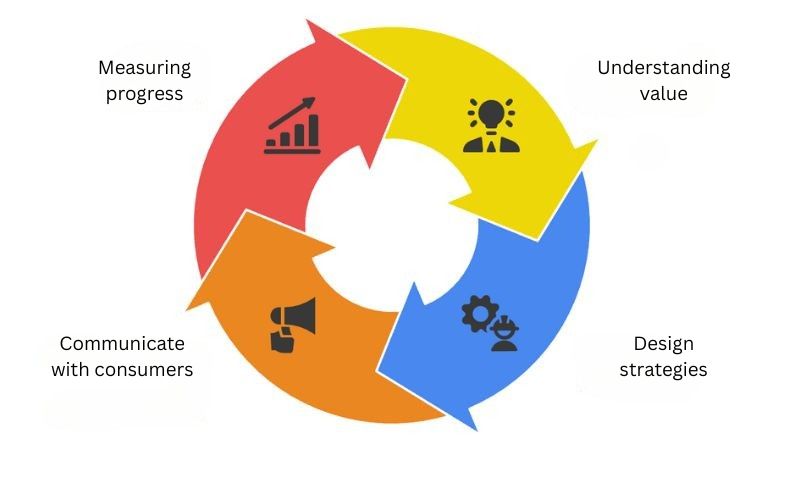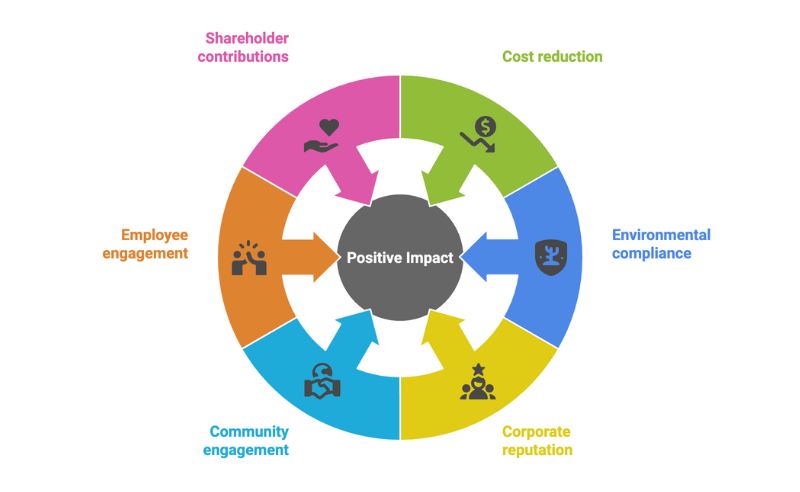Corporate Responsibility and Sustainability

Sustainability and corporate responsibility have gone from being an option to an imperative for any company committed to the future. These concepts reflect how organisations relate to their social and environmental environments.
Increasingly informed and demanding consumers expect brands to act responsibly, not only by generating profits, but also by adding value to society and minimising their environmental impact.
Integrating these two pillars – sustainability and corporate social responsibility (CSR) – into business strategy is no longer a competitive advantage: it is a necessity.
What does sustainability and social responsibility mean for businesses
Applying sustainability in business means operating in a way that protects natural resources and ensures the well-being of future generations. It is not only about complying with environmental legislation, but also about optimising processes, reducing waste and minimising the ecological footprint.
Specific actions include the use of recyclable or biodegradable packaging, efficient management of energy resources, reuse of materials and the use of local or sustainable suppliers.
Corporate social responsibility (CSR) goes beyond the environmental sphere. It refers to actively assuming the impact of business activity on society and seeking ways to make a positive contribution to the environment.
This can take the form of corporate volunteering programmes, donations aligned with brand values or initiatives to improve working conditions in the supply chain.
More and more companies are adopting the triple impact or triple bottom line model, which values a company’s performance not only on its economic profitability, but also on its social and environmental impact. This is known as the three P’s: profit, people and planet.
Benefits of implementing sustainability and CSR programmes
Developing sustainability and corporate social responsibility (CSR) programmes in the food sector – or in any other industrial sector – not only enhances brand image, but also brings tangible value to the business. For these initiatives to have a real impact, it is key:
- Understand how these strategies create value, reduce costs and strengthen the competitive position.
- Design a strategic plan to make the company more efficient, cleaner and more environmentally friendly.
- Connect with consumers through clear sustainability messages.
- Measure progress regularly and with relevant indicators.

When properly implemented, sustainability and CSR programmes generate direct and indirect benefits such as:
- Reduced operating costs, which translates into savings that have a direct impact on the bottom line.
- Ease of compliance with current environmental legislation and anticipation of future regulations.
- Strengthening corporate reputation by responding proactively to social and environmental concerns (e.g. on issues such as pay equity or animal welfare).
- Increased links with the local community by participating in projects with a positive impact.
- Greater involvement of employees, who value being part of a company with a purpose.
- Opportunity for shareholders to contribute to social causes, linking their investments to real change in society.

From profitability to impact: the triple bottom line
Traditionally, companies have operated with a single objective: to maximise profits. However, the dominant model is based on the “triple bottom line”: people, planet and profit. This broader vision is embodied through Corporate Social Responsibility (CSR), which involves integrating environmental, social and governance (ESG) criteria into business strategy.
According to the CSRD Directive in force in the European Union, more than 50,000 companies are obliged to report their ESG performance through the new ESRS standards. Spain is also strongly promoting the rigorous application of these standards to foster a more sustainable and competitive economy (EC, Global Compact).
Technological innovation as a driver of sustainability
Sustainability cannot be understood without technology. Advances in artificial intelligence, data analytics and automation are transforming key sectors:
- Agri-food: technology enables more efficient and environmentally friendly production.
- Mobility: electric cars and automated trains drive cleaner mobility.
- Shipbuilding and aerospace: innovation to reduce emissions and improve energy efficiency.
- Telecommunications and energy: the development of sustainable digital infrastructures and new energy sources requires collaboration between public and private actors.
- Public sector: governments must rely on digital technologies to provide more efficient, transparent and sustainable services.
Business sustainability thus becomes a cross-cutting challenge for all sectors, from defence to retail, including real estate, banking and cybersecurity.
Why are companies committed to sustainability?
- Competitive advantage: Consumers demand brands that are committed to the environment and social justice.
- Employer branding: Young talent seeks purposeful employers. Sustainability attracts and retains qualified profiles.
- Cost reduction: More efficient processes, lower energy consumption and optimisation of resources thanks to technology.
- Access to finance: Investment funds prioritise companies with strong ESG criteria.
- Sustainable innovation: Integrating sustainability forces companies to rethink their products, services and business model.
Sustainability is no longer a department, but a way of thinking and operating. Companies that integrate social responsibility and technological innovation into their DNA not only survive: they lead.
You may also be interested in: